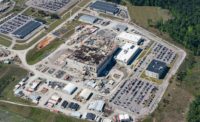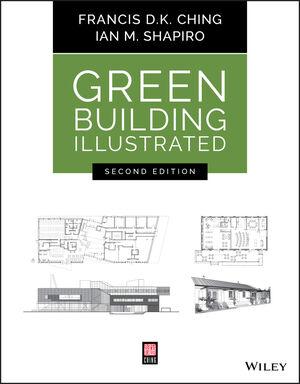Jury Finds Pipemaker JM Eagle Liable in False Claims Suit
A federal jury in California on Nov. 14 found pipe manufacturer JM Eagle liable for making false claims about PVC water pipe it sold to states and municipalities over the course of nearly a decade. JM Eagle pipes are used extensively in drinking water, irrigation and other public systems. The jury's verdict opens the company to potentially billions of dollars in damages, with an exact amount to be determined in a separate trial.
JM Eagle says it plans to appeal the verdict, stating in a press release that "we believe we have valid grounds for an appeal, which we will file as immediately as possible."
Formosa Plastics, the Taiwan-based former owner of JM Eagle and co-defendant in the case, disclosed last week that it had reached a $22.5-million settlement in September for its part in the suit. A federal judge will decide Dec. 19 whether to accept the deal. Formosa Plastics had acquired the PVC pipe business of manufacturer Johns Manville after that company's bankrupcy in 1982. In 1994 Walter Wang, the son of Formosa Plastics founder Y.C. Wang, became head of J-M Manufacturing, now JM Eagle. Walter Wang bought the company from Formosa Plastics in 2005, and today is JM Eagle's sole owner.
The lawsuit alleges that JM Eagle stamped certification ratings on its PVC pipe from Underwriters Laboratories (UL) and the American Water Works Association (AWWA) knowing the pipe did not meet those standards. In a 49-page verdict, jurors found JM Eagle had repeatedly misrepresented certification claims about its pipe, including stamping substandard pipe with AWWA C905 and C900 and UL 1285 labels.
"JM Eagle marketed its pipe knowing for nine years that it couldn't pass these tests," says Mary Inman, an attorney and partner with San Francisco-based firm Philips and Cohen, which is representing the states and municipalities in the case.
Neal Gordon, JM Eagle vice president of marketing and waterworks sales disputed the jury's conclusions. “JM Eagle is confident that the verdict will be set aside. The plaintiffs have not shown the actual pipe installed on the projects at issue was not manufactured to industry standards," Gordon said in a statement to ENR. “JM Eagle’s 50-year guarantee is unprecedented in the industry and our claims rate is less than 0.1% of the 11.4 billion linear feet of pipe we have sold in the last 10 years."
Plaintiffs in the case included the states of New Mexico, Nevada and Virginia, as well as multiple municipalities and water districts in California, a state which allows local government entities to file false-claim suits independently. Other states and the federal government were also listed as plaintiffs on the suit, but declined to act on this case. However, these "real parties of interest" may be entitled to damages now that liability has been established, Inman says.
The false claims lawsuit was first filed in 2006, when former JM Eagle engineer John Hendrix raised concerns about the quality of the company's widely used PVC water pipe. The lawsuit was filed under a statute that allows any citizen to bring a claim on behalf of the government. As the whistleblower in a qui tam lawsuit, Hendrix stands to receive a percentage of damages awarded, ranging from 15% to 30% depending on the individual claim.
The total amount of damages will be settled in a separate trial, as previously ordered by California Central District Court Judge George H. Wu. According to Inman, the money at stake could easily run into the billions of dollars. "There was $2.2-billion worth of product sold within the window to the plaintiffs at issue, but that doesn't cover the real damage here," she said. "If the pipe will not last as long as it is reputed to last, our clients are gonna have to replace it much sooner, and the replacement cost is much larger."
In a press release, Nevada Attorney General Catherine Cortez Masto said "[JM Eagle] PVC pipe has already failed across the Silver State and will have to be replaced sooner than expected—a budget nightmare for our cash-strapped state, cities and local agencies." Virginia Attorney General Ken Cuccinelli said in a press release "The trial showed the company's attempt to cut costs with shoddy manufacturing practices resulted in weaker PVC pipes, which ended up leaking and costing Virginia localities millions to repair or replace."






